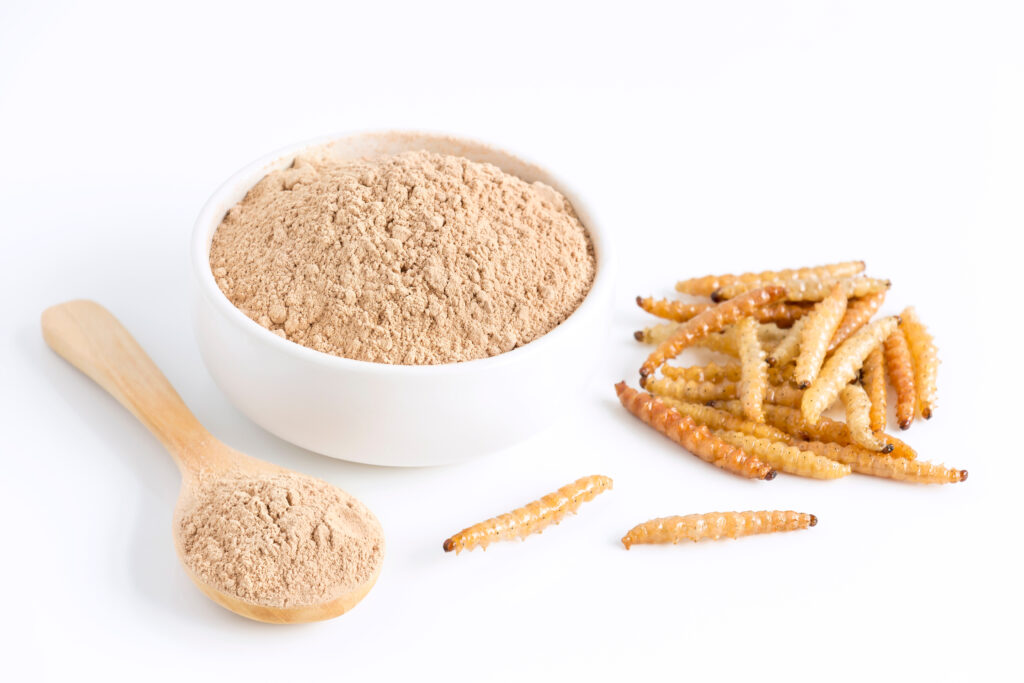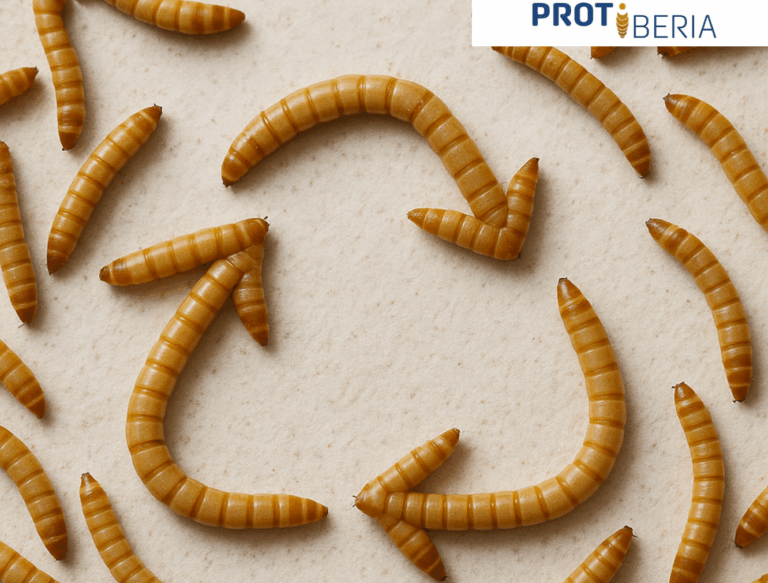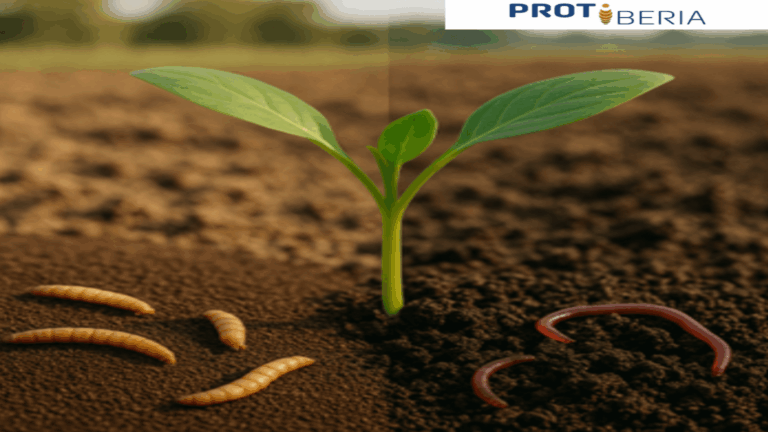| The industrial breeding of insects offers a sustainable solution to challenges such as climate change and food security. Moreover, this practice generates employment in rural areas and products with multiple uses. |
The need to confront global challenges such as climate change and food security has led to exploring innovative and sustainable solutions. In this context, industrial-scale insect farming has emerged as a promising response that not only addresses these issues but also creates employment in rural areas, establishing a balance between ecology and the economy.
In recent years, insect farming has gained relevance due to its ability to efficiently and sustainably provide proteins and other essential nutrients. This practice involves breeding species such as Tenebrio molitor (also known as the mealworm) in controlled facilities. Their growth occurs in a confined space, with a significantly smaller ecological footprint compared to conventional livestock farming.
The versatility of insect farming
One of the most intriguing aspects of insect farming is its versatility. Many unused livestock or mushroom cultivation facilities can be repurposed to efficiently house insect farming. This not only reduces the environmental impact of these abandoned infrastructures but also creates new opportunities for rural inhabitants, enabling them to diversify their activities and continue living in their villages.
Industrial-scale insect farming generates stable jobs in rural areas, helping curb migration to cities and revitalize local communities. Apart from tasks directly associated with insect farming, workers are needed to manage the facilities, process and distribute derived products. Therefore, these jobs provide a reliable source of income for rural communities, reducing dependence on agricultural activities vulnerable to changing climatic conditions.
Products derived from insect farming
Insect farming is characterized by its ability to provide raw materials regularly and without being subject to price fluctuations caused by climate change. Unlike traditional agriculture, insect production is not as influenced by extreme weather events, droughts or floods. This means that farmers and industries can rely on a consistent supply of proteins and other insect-derived products, which is crucial in a context of climatic instability.
Products derived from insects have multiple applications across various sectors, such as human food, animal feed, cosmetics, pharmaceuticals and biotechnology. For instance, insect flour can be used as an ingredient to make bread, pasta, cookies or snacks, providing high protein value and a pleasant taste. It can also be employed as a substitute for fishmeal in feeding fish, poultry or pigs, reducing the environmental impact of fishing and livestock farming. Additionally, insect oil can serve as a base for creams, soaps, shampoos or biofuels, harnessing its moisturizing, antibacterial and antioxidant properties.

Protiberia can assist you!
If you’re considering venturing into this innovative sector, we can help. At Protiberia, we not only provide the necessary knowledge and technology to optimize the production of the Tenebrio molitor insect but also purchase your production.
We have a team of experts in entomology, engineering, nutrition and marketing who will guide you through the entire process, from designing facilities to marketing the products. Additionally, we offer the opportunity to join a network of insect producers who share experiences, resources and benefits.
Don’t hesitate, contact us for more information! We firmly believe that insect farming is an unique opportunity to create value in rural areas and contribute to a more sustainable and equitable development. We look forward to hearing from you!”




2 comments
Kayizzi Robert
How can I join your great team. Am well vast in breeding and making research in different insects majorly mealworms, crickets, black soldier fly, bees, palm weevils and grasshoppers. Will be grateful for your reply. Thanks
Diana Constantin
Hi Kayzzi Robert,
Thank you for your interest. Please send your CV to hola@protiberia.com and we will keep you in mind for future opportunities.
Best regards.